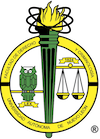Digital or Electronic Evidence and Your Current Legal Challenges
DOI:
https://doi.org/10.29105/dj2.2-7Keywords:
chain of custody, forensics, evidence, proof, root, hash, jailbreak, frames, administrative PrivilegesAbstract
The following article gives us an overview of the most common errors in collecting evidence for digital or electronic evidence. Approached in an entertaining and colloquial way, stripping as far as possible the technicalities used in the jargon of computer forensics; With the objective that the reader can delve in a concise and practical way the problems raised here, stitched together with legal and technical reflections; seeking at all times to strengthen knowledge regarding the minimum criteria that must be met in the management of digital or electronic evidence, for its optimal contribution to jurisdictional or extrajudicial processes.
Downloads
References
Libros:
Benham, Jeremías, Tratados de las prueba judiciales, Argentina, Valletta Ediciones, 2002, pp.3-6
Bielli, Gastón Enrique y Ordoñez, Carlos Jonathan, La prueba electrónica teoría y práctica, Argentina, La ley, p.553.
Quadri, G,H, La prueba en el proceso civil comercial, Abeledo-Perrot, Buenos Aires, 2011 T.1, p.1109
Cibercriminalidad fundamentos de investigación en México, 3ed., 2018, p.553
Darahuge, María, Elena y Arellano, González, Luis E., Manual de informática forense (prueba indiciaria informática forense)bases metodológicas: científicas, sistemática, criminalística, tecnológica-pericial y Marco Legal, Buenos Aires enrrepar, 2011, p.9
Internet:
https://softwarelab.org/es/usb/
https://latam.kaspersky.com/blog/que-es-un-hash-y-como-funciona/2806/
https://capanutri.com.mx/blog/antropometria-en-nutricion/
http://humanidadesdigitales.net/blog/2012/10/27/que-es-la-estilometria-y-para-que-sirve/
https://es.malwarebytes.com/hacker/
https://www.xataka.com/basics/tarjeta-sim-como-funciona-como-saber-que-tipo-tuya
https://www.bbc.com/mundo/noticias-42774859
https://softwarelab.org/es/que-es-antimalware/
Downloads
Published
How to Cite
Issue
Section
License
Copyright (c) 2022 Journal of Legal Challenges

This work is licensed under a Creative Commons Attribution-NonCommercial 4.0 International License.
The authors who publish in this journal accept the following conditions:
- Authors will retain their copyright and guarantee the journal the right of first publication of their work, which will be simultaneously subject to the Creative Commons Attribution-NonCommercial 4.0 International License. That allows third parties to share the work as long as its author and its first publication are indicated in this magazine.
- Authors may make other independent and additional contractual agreements for the non-exclusive distribution of the version of the article published in this journal (eg, include it in an institutional repository or publish it in a book) provided that they clearly indicate that the work it was first published in this magazine.
- Authors are allowed and recommended to publish their work on the Internet (for example on institutional or personal pages) after the review and publication process, as it can lead to productive exchanges and a greater and faster dissemination of the published work ( See The effect of open access).







